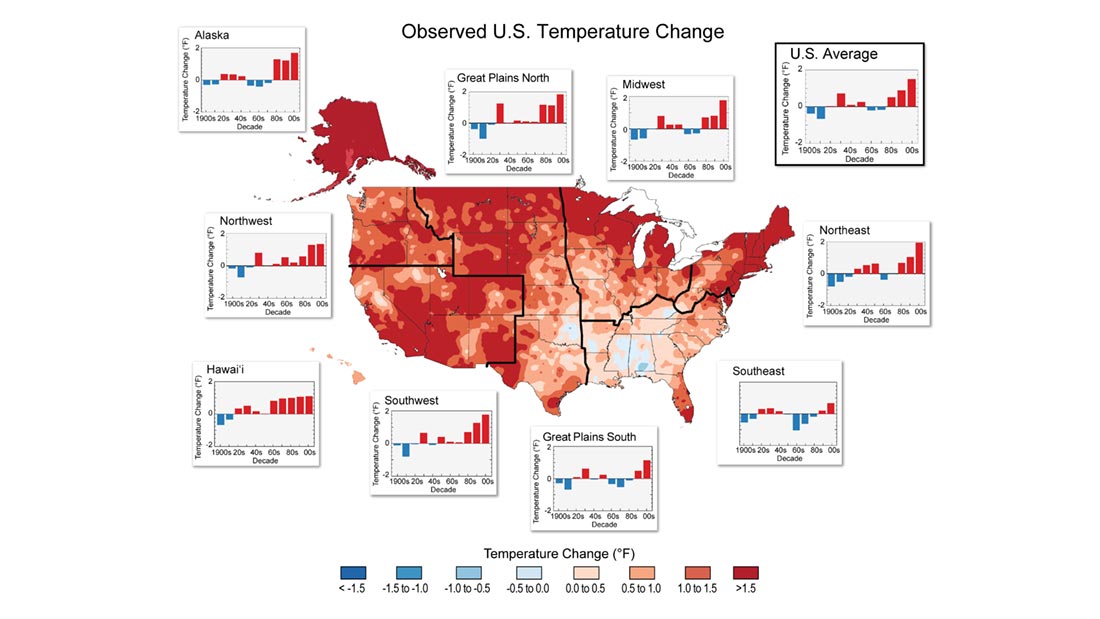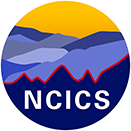
From Fig. 2.7 in the Third National Climate Assessment, ‘Observed U.S. Temperature Change’, this single figure has 11 images, 2 datasets used in multiple combinations across the 11 images, and nearly 300 metadata field inputs documenting this graphic. This metadata is stored in the GCIS and is easily accessible via the NCA3 website (nca2014.globalchange.gov).
The Third National Climate Assessment (NCA3), released in May 2014, provided a comprehensive assessment of the impacts of climate change in the United States. The scope of the NCA3 project and its goals of inclusiveness, transparency, and traceability posed a variety of information management challenges. Many of those challenges, and the tools and processes developed to meet them, are described in an article published in Climatic Change. CICS-NC’s Sarah Champion and Kenneth Kunkel are coauthors, writing along with lead author Anne Waple and Curt Tilmes.
The authors describe a range of information management solutions developed for NCA3, including:
- web portals for soliciting technical inputs from stakeholders and for facilitating the collaborative development of chapter content and figures;
- processes and tools for collecting metadata and other source information, which were essential to meeting the requirements of the Information Quality Act;
- a system for soliciting and managing review comments from the public and expert bodies, as well as the responses to those comments;
- the Global Change Information System (GCIS), which provides access to metadata and facilitates the exploration of connections between data sets, reports, subject matter experts, observing systems, and more;
- the delivery of the report itself via a user-friendly, engaging web interface that provided easy access to GCIS content.
Much of the development of these information systems was done at the NOAA Assessments Technical Support Unit (TSU) the National Centers for Environmental Information (NCEI, then known as NCDC), in Asheville, NC. The TSU staff for the project included a number of current and former CICS-NC employees as well as NOAA staff and contractors.
Lessons learned from the NCA3 informed refinements of the processes and tools used by the TSU to support and deliver the USGCRP Climate and Health Assessment in April 2016. Continuing improvements are planned in support of the ongoing sustained assessment process, including a climate science report and the fourth National Climate Assessment, which are currently in development.
Waple, A. M., S. M. Champion, K. E. Kunkel, and C. Tilmes, 2016: Innovations in information management and access for assessments. Climatic Change, 135, 69-83. http://dx.doi.org/10.1007/s10584-015-1588-7
